Born in Darmstadt in the decade of the baby boomers, Bert Fenber has a doctorate in American Studies, a degree from the University of Münster and 20 years of experience as a journalist for major German media. Due to his father’s work, Bert would constantly be moving around, and eventually found himself in an American high school in a small town in southern Michigan. It was during this time that the seeds of music and songwriting were finally planted in his life. Throughout the 80s and 90s, he would make several trips to places such as New York, Pennsylvania, California and Florida, allowing him breathe American pop and rock culture again. However, it wasn’t until much later in his adult life, that Bert Fenber would end up in a friend’s studio in the German university town of Munster, and begin recording his songs professionally.
- With a doctorate in American Studies, a degree from the University of Münster, and 20 years as a journalist, how and when did music become an important outlet for you?
Bert Fenber: Since I am 16 I play the guitar, the year I went as a foreign exchange student to a High School in Michigan, USA. My guitar went with me and I played in an Afro-American band as the only white person. Over the years, I composed songs time and again, had small gigs in bars. In 2001 and 2002 I published some in You Tube, already produced in a recording studio. It then took quite a few years – and a “normal” life – until I finally put as much energy as I can into my music. One trigger, so to say, was Covid 19 and the lockdowns in Europe when my work in my own firm as a coach came to a longer stop. For others it was stress, for me it was a gift. I finally could start full power with my music.
- For most artists, originality is first preceded by a phase of learning and often, emulating others. What was this like for you? How would you describe your own development as an artist and music maker, and the transition towards your own chosen style?
Bert Fenber: I started my music professionally quite late but it was somehow always part of my life. I don´t know how many songs I composed and wrote down on slips of paper, putting them into a drawer. When I listen to music, I mostly sit down and don´t do anything else but listen. When I was still living at my parent´s house I sat late at night and listened to records of the Who, Creedence Clearwater Revival, the Rolling Stones, Bob Dylan etc. Also bands like Tom Petty and the Heartbreakers or REM influenced me. In the 90ies, I was for several weeks in the USA and drove down Highway No 1 from San Francisco to Los Angeles where I visited a friend. During this drive I listened most of the time to a hit radio which played a “Who-is-Who” of American pop and pop rock. All this shaped my own music. Not forgetting live concerts of Paul Simon in South Bend, Indiana and of Joe Jackson in Philadelphia, Pennsylvania. Form the very beginning, I never wanted to cover songs, I only wanted to write my own music.
- Where do you record, produce and master most of your work? Do you outsource any of these processes or are you totally self-sufficient?
Bert Fenber: I am lucky to have found a very good recording studio in the center of my town in Münster. The guy owning the “Starstreet Studio” is not only good in mastering and mixing etc. but he also plays the piano quite well. So he also contributes the piano and the keyboards to my songs. Plus, he likes my music.
- Do you feel that your music has given you back just as much as you have put into it over the years, or were you expecting something more or different?
Bert Fenber: I am happy that in my “advanced” age I came this far with my music. It is not really my first goal to expect to make good money with my songs, no. This is not realistic in today`s music business which in my opinion is dominated by big labels, playlists, click rates and influencers. Often times newcomers are not really noticed even though their music is fantastic and on the quality level of the charts. My goal is that more people listen to my music and enjoy it.
- How would you define the word “success” as a musician? What does “success” in in music, mean to you personally?
Bert Fenber: Well, I guess my last answer covers this question already. Still, I would like to add that success for me – I of course cannot speak for all – means to get positive feedbacks for example in Instagram or on my You Tube channel. Then I have the feeling that my music touches people and this is satisfying. Yes, I would say to touch people means success for me and to be listened to by more people.
- What drives your day after day, more than anything else, to continue pursuing your musical career?
Bert Fenber: First, to make music is to express myself. It is also a way of dealing with the experiences I have in my life, good and bad. Experiences, more or less, that we all have. Then my former work as a journalist for big newspapers also drives my wish to put out messages. Any artist of course wants to be seen or heard, art without people reacting to it does not make much sense. This is one reason why I also write songs which are a protest, for example, against the climate change. “No Return” is such a song.
- The music industry has fundamentally changed over the years. For the better or for the worse in your opinion?
Bert Fenber: Very difficult question. On the one hand, the social media have multiplied the channels to put out your music. In Instagram you can reach the whole word with one post. On the other hand, it is platforms like Spotify and others which have in a way a degrading effect on most musicians because the financial return to the artists is very low. The digitalized market makes it easy to put out music for so many people, yes. This at the same time also means that you are a small voice among endless others. The times that a producer walks into a club where you play and offers you a record contract are more or less over.
- What is your connection or commitment, to Newcomer Music Management, and how do you think this will benefit you?
Bert Fenber: Newcomer Music Management gave me a promotion contract and is very helpful and important to me. When it comes for example to advice, to promotion campaigns, radio stations or to music magazines the agency supports me well. You don´t feel alone then in the music business. The agency does the job to tell the music business people “Hey, look at this artist, you should notice him or her”.
- Regardless of genre, which basic qualities does a song need to possess to qualify as a “good” re-listenable song in Bert Fenber playlist?
I am afraid this will be a conservative answer: I definitely need a melody line, a tune that gets me hooked and enters my ears. The song somehow has to lift me regardless if it has a rocking rhythm or if it is a slow ballad. Today`s trend to put voices or instruments through an electronic filter is not really something I enjoy.
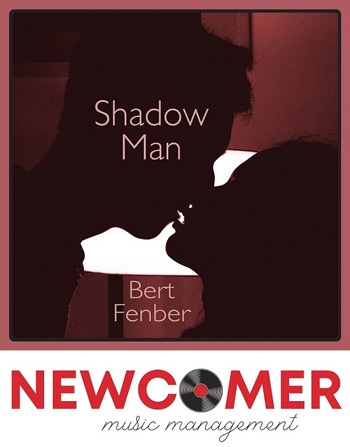
- Having said that, do you have a personal favorite song in your own catalog that has a very special meaning to you, and why?
Bert Fenber: Well, all of my songs are linked to my personal experience and emotions, they are – in one way or other – windows to my soul. “Shadow Man”, I would say, is a quite personal song. It reflects an experience with a relationship which had been limited by circumstances and not by emotions. Plus – this is true and no singer-songwriter fairytale – I had dreamed about the tune and melody that night before. I hummed it in my dream, the first time ever. When I woke up in the morning the melody was still there and stayed in my head till noon. Finally, I sat down and started to compose the song.
- Do you think is it important for fans of your music to understand the real story and message driving each of your songs, or do you think everyone should be free to interpret your songs in their own way?
Bert Fenber: I would lie if I said, that I don´t care whether they get my message or not. “No Return”, my anti-climate change song, can be understood directly. Then again, people often tell me that a song even with more serious text lines puts them into a happy mood because of the melody. This shows that any piece of art develops its own character or message regardless of what the author or musician intended to say.
- Tell us something about your song “Bright Eyes”? Does it come from your own personal experiences, or just by observing the world?
Bert Fenber: It again comes from personal experience. I recorded the song the first time in 2001 in an acoustic version. At that time, it was just a fantasy, a guy thinking of the hours he spent together with his woman. Years later, I worked on it in the studio once more. Only then it became connected to a real person. “Bright Eyes” and “Shadow Man”, if you want, are linked like the development of a story.
- How long did you take to compose the song Bright Eyes”, and then complete the recording?
Bert Fenber: Due to the fact that the song was already existent in an acoustic version, it was easier to build up on it as a complete song. So, normally the process of composing at home, writing the lyrics and then developing the tune into a fitting song takes about 6 weeks. The electric guitars of Otto Rasche, a professional musician who is on tour often times, really fit in a very genuine way to the melody line of the basic rocking character of “Bright Eyes”.
- What for you, is the most exciting part of the process of putting a new song together?
Bert Fenber: Well, composing tunes at home, bringing melody lines into existence, even writing the lyrics, so far I could do quite easily. For me, the work in the studio is the most exciting part. Even though I have been recording now so many songs I am each time under tension. It is always in a way like the first time. Which is good because then you are awake. It is also an adventure. You might have distinctive ideas and you give “instructions” to the musicians – still, the song can come out completely different to what you imagined. It is a piece of living art.
- When creating on new songs, do you work with a fixed daily writing and recording schedule, or do you only work on your music when you feel inspired?
Bert Fenber: I don´t really need to live from my music. So, I mostly start working on a new song when I feel it is time…However, talking about the dynamics of social media, in a way I am under pressure to put out something new. If you don´t feed the algorithms of the social media you will vanish. In the sciences one says “publish or perish”, it is the same with music.
- Do you typically test your new tracks in a live performance setting prior to recording them, or do you go with your own personal instinct?
Bert Fenber: No, not in a live performance. Mostly, I sent the master track, which has still to be worked on, to friends of mine and see how they react. And if they say “I don´t like this part or that” I try to consider it in my studio work.
- Many of your songs have been made into music videos. How important do you think video is to your music, and music in general?
Bert Fenber: I find it a bit stressful to always have to create a video. Videos have become indispensable. Since TV channels like “MTV” started their work the visualization came into the market. People now expect not only to listen but also to watch. So, a video is important for my music and for all – for example – pop or pop rock music. However, as a musician or a singer-songwriter your job is to create music, not videos. That means you need professional help which costs….
- Creative work in studio environment, or interaction with a live audience? Which of these two options excite you most?
Bert Fenber: Live performance or creative work in a studio – these are two worlds. The studio track of course is more or less perfect and when people listen to it they might want to listen to it in a live performance. In my opinion, the latter will never be as “good” as a studio track, so you try to come near the level of the studio work. On the other hand, performing live you are free to change your music a bit, make it compatible to a live situation. This is also interesting. So, both is equally exciting but performing live means that “mistakes” cannot be corrected or deleted.
- Do you have a favorite motto, phrase or piece of advice, you try to live or inspire yourself by?
Bert Fenber: Yes, first I would say to have trust in yourself and in your instincts. Then it is also important to understand that living and giving the best you can in the present is important.
- What do you find most rewarding about your music and being a musician? Do you have a specific vision or goal set in your mind that you would still like to achieve in the near future?
Bert Fenber: I find it quite rewarding when people give me good reactions to my songs. I would of course also like to be played in bigger radio stations yet. To have successful performances with my band is also a goal.
OFFICIAL LINKS:
Website: www.bertfenber.com
Facebook: (8) Bert Fenber Music | Facebook
Instagram: BERT FENBER (@bertfenber) • Instagram






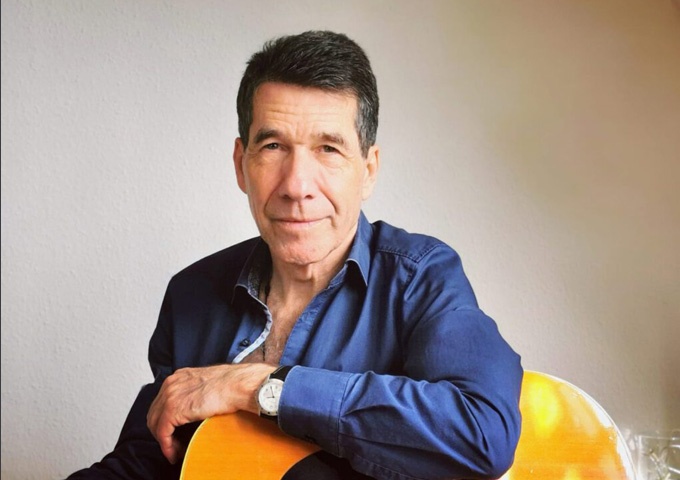
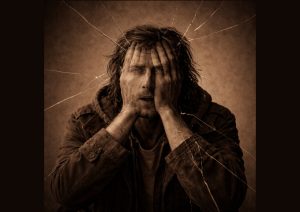
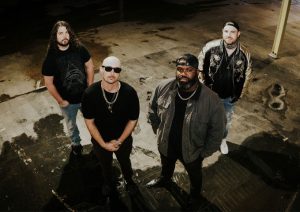
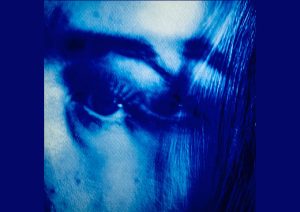
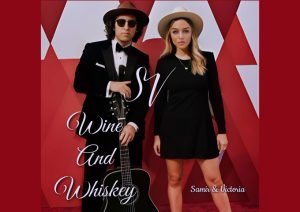
More Stories
“Hay Zeus”, Heavy History: Ty Bru on Legacy, Layers, and Letting Go at 20 Years of MTTS
The Cosmic Factory on 15 Years of Psychedelic Alchemy and the Making of ‘Lab Grown’
Detroit Soul, Modern R&B Elegance: An Interview with Reggie Braxton